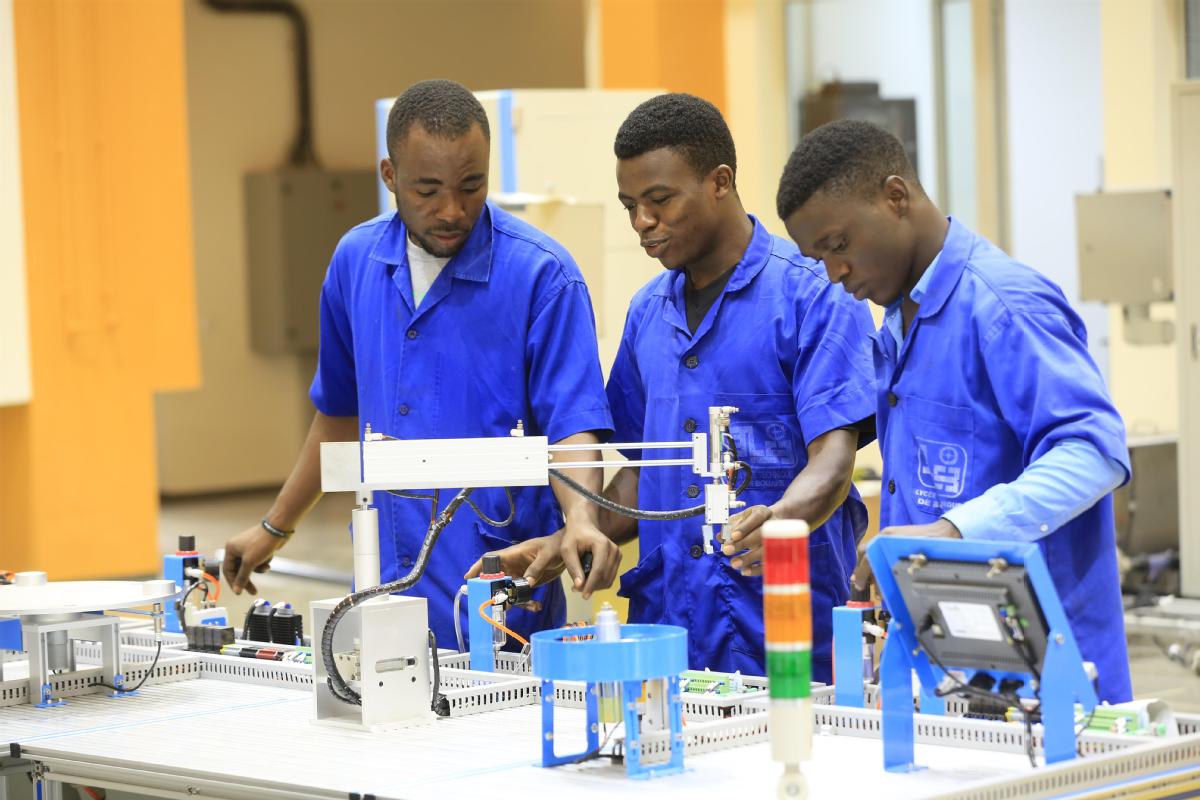



At a vocational school in Indonesia’s East Java, classes are being taught on automotive engineering and maintenance for new energy vehicles.
In the Portuguese seaside city of Setubal, students are earning degrees in industrial robotics and automation technology.
In Pakistan, which hosts the US$62 billion China-Pakistan Economic Corridor, a Luban Workshop in Lahore, Punjab province, provides classes in “Industrial Automation & Robotics”, in partnership with the Tianjin Modern Vocational Technology College.
Luban Workshop established in Kenya in late 2019 serves as an opportunity for Kenyan students to partake in world-class and innovative cloud-computing courses. Kenya’s Ministry of Information Communication and Technology (ICT), has also hailed the workshop for “enhancing cooperation in digital space”, emphasising that the cloud-computing and information-security training at the workshop’s core were critically important for the country.
In Djibouti, the first cohort of students from Africa’s inaugural Luban Workshop will be putting their degrees to use immediately upon graduating later this year. Trained in railway operations and management; rail-engineering technology; and business and logistics, they are set to work on the China-funded Addis Ababa–Djibouti Railway.
And soon, a vocational school in central Asia’s Tajikistan will start offering degrees in urban thermal-energy planning.
In 2020, Tianjin Medical College partnered with the University of Arts and Humanities of Bamako, Mali, to open a non-degree-offering Luban Workshop specialising in traditional Chinese medicine (TCM). In recent years, China has been promoting TCM as a cheaper alternative to Western medicine across the African continent.
Britain also has its own Luban Workshop. The city of Liverpool hosts a culinary workshop training local chefs in the intricacies of Chinese cuisine, which it says helps meet the changing tastes of the country.
Named after master carpenter and inventor Lu Ban, said to have lived during the Zhou dynasty (1046-256 BC), the first vocational centre under his moniker opened six years ago at northern Thailand’s Phranakhon Si Ayutthaya Technical College.
President Xi Jinping promoted Luban Workshops as a means for countries to develop their economies, saying 10 centres were planned across SCO member-states, according to Chinese state media reports.
“They are trained and equipped with targeted skills in collaboration with the enterprises they will work at after graduating,” Yu Zhongwu, president of the Tianjin Railway Technical and Vocational College that provides the workshop, was quoted as saying in an August report by the state-run Global Times.
According to state media reports, more than 3,000 students have received certifications from Luban Workshops globally, with a further 12,000 currently being trained. By comparison, a 2018 estimate by the World Bank said Indonesia needed an additional 9 million workers skilled in information and communication technology to reach its 2030 development goals.
All of these schools exist under the same educational umbrella stemming from the northern Chinese port city of Tianjin. Formed in partnerships between a host country’s local institutions and vocational schools in Tianjin – under the guidance of China’s Ministry of Education – the workshops promise to shore up the abilities and know-how of local workforces.
[Information Taken from South China Morning Post & Global Times & Bloomberg]
Author: Saikat Bhattacharya